While narcissism is a trait, it may be a part of a larger personality disorder known as Narcissistic Personality Disorder (NPD). The degree to which a person exhibits this trait determines where on the narcissism spectrum they are. Only the extreme cases are classified as having Narcissistic Personality Disorder.
According to psychotherapist Jui Pimple who is a trained Rational Emotive Behavior Therapist and Bach Remedy Practitioner, “A classic narcissist is someone extremely self-involved to an extent to completely ignores the needs of others.” This article will examine the effect NPD can have on narcissists’ relationships and will have a closer look at what a narcissist does at the end of a relationship. While this may differ case-by-case, certain patterns will remain the same.
What Is A Narcissist?
Table of Contents
Narcissists are people with an extremely high sense of self-importance, often to the extent of ignoring the emotional needs of those around them. While most people exhibit narcissistic traits to a certain degree, a true narcissist will ignore the feelings of others and will not pay heed to, nor understand, the effect that their behavior can have on others.
Jui explains, “Very specific features of a narcissist can be being envious of others, or feeling that others envy them, completely ignoring the needs and feelings of others. They want to have everything best for themselves but are unwilling to do the same for others, including close family members. They constantly require admiration from others, and failing to get so makes them agitated and insecure. It has been found that people with narcissistic personalities are mostly men.”
What causes a person to develop this disorder is unknown, but mental health professionals think it can be linked to the environment, genetics, and neurobiology. Environmental factors could include frequent and disproportionate adoration or criticism from parents. Genetics plays a role in certain inherited personality traits. Neurobiology is the connection between the brain, an individual’s behavior, and thinking.
Related Reading: 13 Narcissist Quotes About Dealing with Narcissistic Abuse
What Is A Relationship With A Narcissist Like?
People with Narcissistic Personality Disorder tend to be tough relationship partners, and a relationship with a narcissist can be an emotional roller coaster. Narcissists are more likely to be manipulative partners than committed to a long-term relationship. To understand what a long-term relationship with a narcissist is like, it is extremely important that one understands their personality traits better and how these change over time. These are some of the signs that a narcissist is using you:
1. They love bomb you
Initially, they can be extremely charming, and it seems you have met the perfect partner. They can come across as kind, generous, affectionate, and sociable. They may shower you with charm and affection. This is known as love bombing and will continue till you begin to trust them. After you’ve been love bombed by a narcissist, this charming attitude and behavior changes, and they will begin to put you down. The narcissist hot and cold game or the cycle of narcissistic abuse has begun. The abuse is followed by attempts to keep you in line, as long as you can feed their narcissistic needs.
2. It’s always about them, not you
While initially, they pay a lot of attention to you and your needs, this soon changes, and every conversation becomes about them and their experiences. Conversations will often be interrupted to bring the topic of discussion back to them, and gaslighting phrases like “you’re just insecure” will soon be bandied about. Your opinion will soon be disregarded, and their attitude will be one of dismissal. They may even turn to others for a new supply of approval.
3. They believe they are special and have to be treated as such
They demand and expect special treatment. This includes being allowed to break a queue and move ahead even when others are waiting. When this special treatment is denied, they tend to get angry and may react with rage, play the victim, or withdraw into a sullen silence.
4. Nothing else matters except themselves
Their attitude makes it clear that others are not as important as them. They tend to brag about their own achievements and exhibit grandiose behavior, expecting others to behave subserviently. If you do not fall in line, it gives them another opportunity to run you down and make you look like the bad guy. It doesn’t matter if you get hurt in the bargain.
Related Reading: Breaking Up With A Narcissist: 7 Tips And What To Expect
5. They require constant validation
They love receiving compliments. And these compliments boost their fragile egos and validate their feelings of superiority. Not providing them this fodder will once again trigger abusive behavior toward you.
6. They play hot and cold
While initially, they will shower you with attention and be extremely considerate, they will eventually begin to disregard your feelings and needs. This makes them seem cold and remote. They will not offer you the emotional support every partner in a relationship needs. Their lack of empathy can cause you to feel abandoned and alone and to be extremely dissatisfied with the relationship.
7. Their interactions are shallow
They are extremely superficial, often focusing on just their appearance, image, and social status. Being critical of how others look is a hallmark of their behavior, and they expect you to maintain their standards. Deep, meaningful conversations do not interest them.
8. Relationships are one-sided
A relationship with a narcissist tends to be very one-sided. They hardly have long-term friends, unless they tend to be empaths who use people-pleasing to feel good about themselves. However, not having friends or friends moving away due to circumstances, does not necessarily indicate narcissism. Friendship, after all, is a two-way street and requires effort from both people.
9. They are manipulative
The initial phase of being extremely charming and attentive to your needs can change quickly if you feel slighted by others. Over time, the charming aspect of their personality is used to gain back your favor, but is otherwise absent. They are extremely manipulative and use others to further their own needs. They are experts at making you feel guilty. They put you on a guilt trip to manipulate you into doing something that isn’t in your best interest but furthers their own needs.
Related Reading: Empath Vs Narcissist – The Toxic Relationship Between An Empath And A Narcissist
10. They cannot handle criticism
They cannot handle criticism well and will often lose their temper in the ensuing argument. Their reaction to being criticized is to respond with criticism. They will often gaslight you into believing that you are to blame and that you are the bad guy.
“A narcissistic partner will think they are superior to their partner and always look down upon them. However, a narcissist will also experience secret insecurity, humiliation, and the fear of being exposed as a failure,” states Jui. Dating a narcissist can be extremely difficult, as they can be hard to deal with.

What A Narcissist Does At The End Of A Relationship
When a relationship ends, narcissists become more manipulative and play clever games. They will tend to blame you for the failure of the relationship but manipulate you into continuing with it. They may even promise to change their behavior, but that seldom happens.
Their behavior becomes more erratic. While you will be showered with adoration one moment, you will be made to feel responsible for everything wrong in the relationship the next moment. Towards the end, they may become increasingly hostile and aggressive, exhibiting passive-aggressive behavior in an attempt to assert and retain control. What a narcissist does at the end of a relationship may include:
1. They manipulate you
Narcissists end relationships by playing narcissist break-up games in an attempt to make you feel guilty. These games will involve manipulation and will make you feel like you are the cause of the relationship’s failure. “Someone who demonstrates narcissistic behaviors will operate in a manipulative, but convincing way.
They are good at making themselves appear as the victim when issues with their behaviors are brought to their attention,” states wellness expert Oddesty Langham. It will always be your fault, and you will always be to blame. This also reinforces their opinion that they can do no wrong and helps them justify their actions in the eyes of others. Some of the statements a narcissist makes may include:
- “This relationship is not important to you”
- “I feel betrayed and rejected”
- “You’re so selfish, you only think about yourself”
These will be thrown at you in an attempt to make you feel guilty.
2. They gaslight you
What a narcissist does at the end of a relationship could actually involve resisting any attempts to end the relationship. The response may be direct or indirect but will ultimately wear you down. While this may not seem to make any sense, you may hear phrases like:
- “You don’t mean that”
- “Stop overreacting”
- “Don’t be ridiculous! We are sticking together and will work this out”
- “Running away won’t help. We have to work this out”
3. They move on to the next relationship fast
They may try and win your affection back by making you jealous. This happens when a narcissist leaves you for someone else. They will find a new partner almost immediately or even try to get back with a former partner. They may then publicize the good time they’re having. Their end goal is to make you feel as if they are happy and have moved on.
The ease with which they do this may make you feel like they never cared about you in the first place. You can end up questioning your judgment and feeling insecure, making it difficult for you to move on. A painful breakup makes it easier for them to win you back.
Related Reading: When Someone Leaves You Let Them Go…Here’s Why!
4. They control your reactions
What a narcissist does at the end of a relationship is to try and make you feel guilty. They will use this guilt as a weapon against you to control you. The guilt will keep you in the relationship even though you may want to end it. A narcissist is playing mind games with you when they try and make you feel guilty with statements such as:
- “I will commit suicide if you leave”
- “You’re the only one who understands me”
- “Go on then, leave. I hope I can deal with the loneliness”
- “You’re betraying my trust when I need you the most”
5. They may promise to change
A promise to change their ways is a common response when they feel threatened. A narcissist combines this promise with other tactics, such as threats and manipulation, at the end of a relationship. Superficial attempts to change may even be attempted, but these changes are seldom sustained. Studies have shown that a narcissist may be aware of their characteristics, but the need for control and recognition usually wins over. Some of the promises they may make include:
- “I promise to see a therapist”
- “Things will be different from now on”
- “I am going to seek help for dealing with my anger”
- “As soon as this project is done, I will spend more time at home”

6. They won’t let go
They may begin to stalk you. Apart from physically following you, stalking may take other forms. These include turning up unannounced, reading your messages, and even extreme ways, such as installing tracking devices on your phone or trying to gain access to your mail. The information that they get from these attempts will be used against you directly or indirectly.
Related Reading: 9 Expert Tips To Let Go Of Someone You Love Deeply
7. They magnify the situation
What a narcissist does at the end of a relationship may consist of creating a fake crisis. This is done in an attempt to magnify stressful situations and induce guilt. This may be an attempt to resurrect the relationship and win you back. A manipulative narcissist may say things like:
- “I wanted to let you know that my mother is terminally ill”
- “I know it’s over between us and that you probably don’t care, but my doctor thinks I have a heart condition”
- “Things are bad at my end. My landlord has served me an eviction notice”
8. They may seek revenge
Narcissists and those with NPD can be extremely vengeful, especially if they feel like they’ve been attacked. Research shows that people tend to be vengeful whenever their prime motive is a lust for power or status. After exhausting all other options, what a narcissist does at the end of a relationship may include exacting revenge to hurt you. A narcissist who is all out for revenge may say things like:
- “ I’m going to sue you”
- “ People will hear about what a horrible person you are”
- “ You will live to regret this”
What a narcissist does at the end of a relationship could be a combination of one or more of these tactics. They may be tried either in a one-on-one situation or may involve others. The term professionals use for this involvement of others is ‘narcissistic triangulation.’ Triangulation is a typical manipulative tactic in which a third person, typically a family member or a best friend, is roped in to try and change the dynamic, with the intent of tipping the scales in an argument.
The narcissist undertakes narcissistic triangulation with deliberate intent. The narcissist will take on a different persona in an attempt to win the third person over to their side and convince them of their rightfulness. Three common personas employed are:
- The Persecutor: In this role, the narcissist will use strong language to try and establish who the wrongdoer is
- The Victim: In this role, the narcissist will make themselves look like the victim who has been wronged, thereby avoiding responsibility for their actions
- The Rescuer: Usually filled in by the third person, this role can also be taken over by the narcissist. They will try to fix things and accept some responsibility, but only to try and make you feel guilty
Dealing With A Narcissistic Relationship
Narcissistic relationships are toxic and can be extremely emotionally damaging and difficult to deal with. If you find yourself in a relationship with a narcissist, it is imperative that you reflect on your motives in choosing such a partner. This means taking a good hard look at your personality traits. While this can be difficult for many people, you could start introspecting by asking yourself a few questions.
- Was one of your parents (or caregivers) a narcissist or self-centered?
- Do you prefer your partner to be in control while you remain a passive spectator?
- Do you feel that being with someone popular and regularly in the limelight enhances your sense of self-worth?
- Do their superior attitude and constant criticism of you resonate with your feelings of inferiority?
- Do you tolerate their regular abuse because you lack confidence and cannot assert yourself?
- Do your feelings of empathy toward your partner prevent you from drawing boundaries and saying “No”?
Related Reading: 8 Signs Of Covert Narcissist Hoovering And How You Should Respond
Do Narcissists End Up Alone?
Despite being extremely charismatic and popular, narcissists have trouble maintaining relationships that run a distance. Being the charismatic and confident type, they tend to make a favorable impression initially, which is why they make friends easily and are popular. They are good at speed dating, can impress job interviewers easily, and can gain many followers on social media platforms.
However, over time, people tend to notice their underlying traits and that makes them back away. Their shallow, self-absorbed behavior and their inflated sense of importance tend to alienate people. Their relationships tend to be short-lived. Even seemingly long-term relationships tend to fizzle out. The result is that narcissists, by mid-life, usually tend to end up alone.

Jui recommends the following tips to help navigate a relationship with a narcissist:
- Clearly communicate how their behavior affects you: There will be times when they will say hurtful things or be absent from your needs. So, make them understand what you want and how you feel about their behavior
- Accept that they will not change much: Since their behavior is part of their personality, it is difficult to bring much change. If they are willing to ask for some help, you may support them and take them to a therapist or a doctor. But this will be tough
- Do not try to tell them what is wrong with them: This could backfire, as such people cannot handle any criticism or listen to any of their flaws
- Set some clear boundaries: Such partners would generally have lots of expectations from you, just to fulfill their needs. But they fail to notice that you too have needs to fulfill. So, set some clear boundaries regarding expectations. When they are not followed, set some clear actions, such as walking away
- Get yourself a support system: Dealing with such a partner is mentally draining. So, set up a support system, which may include parents, friends, or a therapist, to meet your needs of receiving empathy, care, etc.
Related Reading: 9 Things To Be Mindful Of When Arguing With A Narcissistic Husband
“Having a narcissistic partner is not going to be easy. First, it is difficult to determine the cause of their behavior. But once one understands that the behavior is due to their personality, it could be easier to handle.”
Key Pointers
- A narcissist is an extremely self-involved person with an extremely high sense of self-importance who completely ignores the needs of others
- Studies have shown that during the course of a relationship, a narcissist will behave in particular ways to manipulate the situation to their advantage
- Towards the end of a relationship, they often resort to tactics such as threats, finding another partner, magnifying stressful situations, and seeking revenge
- You can best deal with a narcissist by setting firm boundaries and arming yourself with a support system which may include friends, family, or a therapist
Once you become more aware of your role in a narcissistic relationship, it will become easier to identify areas of your personality that you need to change. As you change your half of the relationship dynamic, your partner may be compelled to change their style too. You will also begin to gain insight into their personality traits and see how their big ego and grandiosity are cover-ups for their inadequacies. This will help you develop your self-confidence, and you will be able to place your needs above everyone else’s. Learn some self-love so that you can stop being the victim.
However, this is not an easy task. So, a lot of people turn to friends or seek professional help. You may not even be aware that you have a narcissistic partner and may seek professional help to deal with your relationship issues. Whatever the path, seeking professional help may be the best way forward to deal with a narcissistic relationship.
The process of recovering from narcissistic abuse in a long-term relationship can be long and complicated. It is vital that you recognize your own emotional needs and prioritize them. You must keep reminding yourself that you deserve a healthy, loving relationship where your emotional needs are also taken care of.
FAQ
Due to their psychological makeup, narcissists are drawn to people with complex personality traits. No single trait will attract a narcissist, but a combination of several will. Some of these traits include feeling responsible for others. This trait in a person makes the narcissist feel important and valuable. Such people also have a tendency to put others’ emotional needs above theirs.
Empathy too is a powerful magnet for narcissists, as they crave approval and validation of their opinions. Another trait that a narcissist is drawn to is a combination of high and low self-esteem. The individual will usually appear confident and able but with occasional bouts of low self-esteem, making them feel that they are not good enough. This trait also makes the partner prone to feeling guilty. The partner should also have some qualities that add to the narcissist’s self-image.
There are several reasons why you may attract a narcissist. You may have been a victim of narcissistic abuse as a child and will therefore be drawn toward someone who is narcissistic. You may suffer from low self-esteem even though you may appear able and confident. You may have a people-pleasing personality, which a narcissist knows will allow him to take a dominant position in the relationship.
You may be highly empathetic, giving your partner the attention they crave and a hook to manipulate you with. You could be naive and inexperienced, with no experience of being around a manipulative person like a narcissist. A combination of these traits makes you an attractive target for a narcissist.
7 Reasons Why Narcissists Can’t Maintain Intimate Relationships
The Narcissist Silent Treatment: What It Is And How To Respond
Your contribution does not constitute a charitable donation. It will allow Bonobology to continue bringing you new and up-to-date information in our pursuit of helping anyone in the world to learn how to do anything.

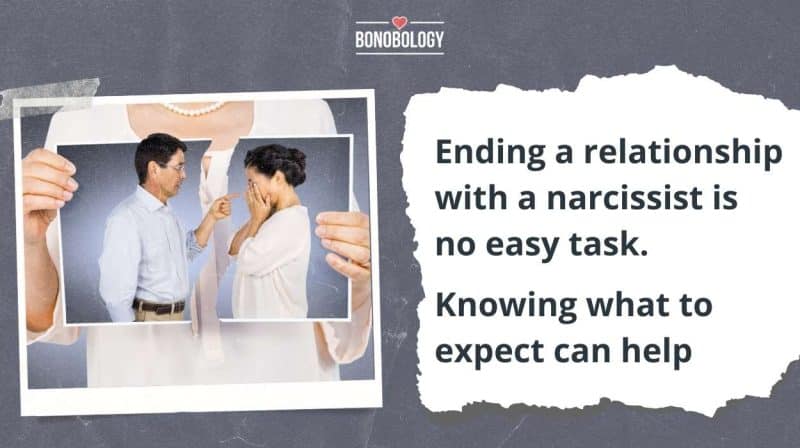

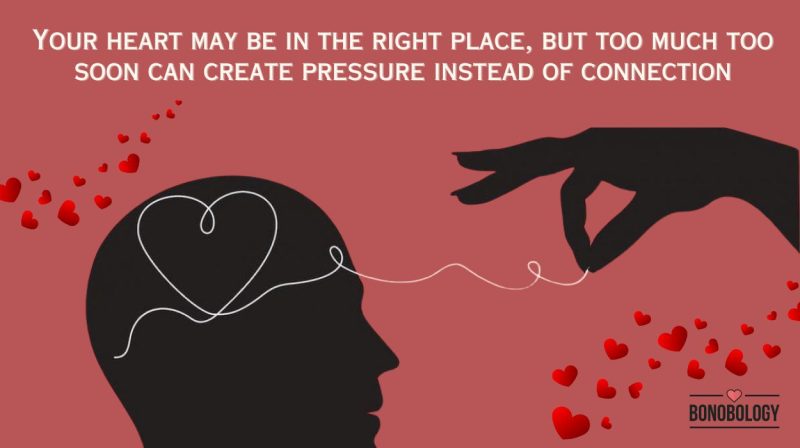

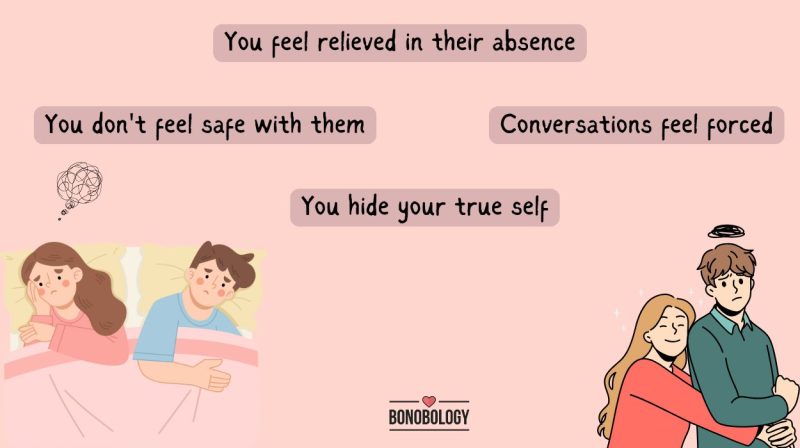




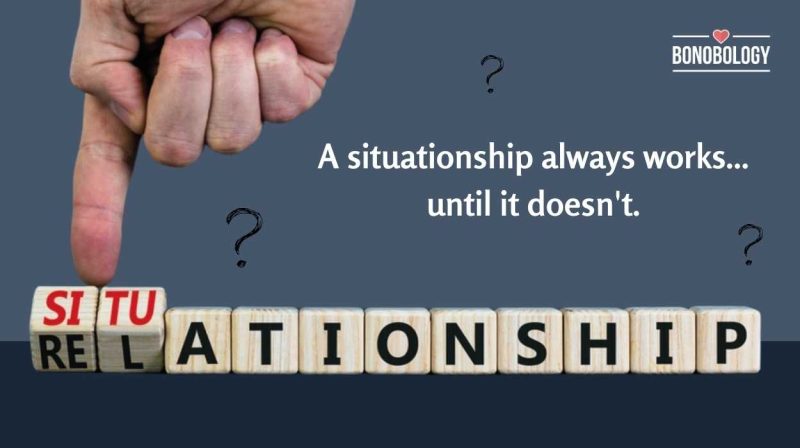

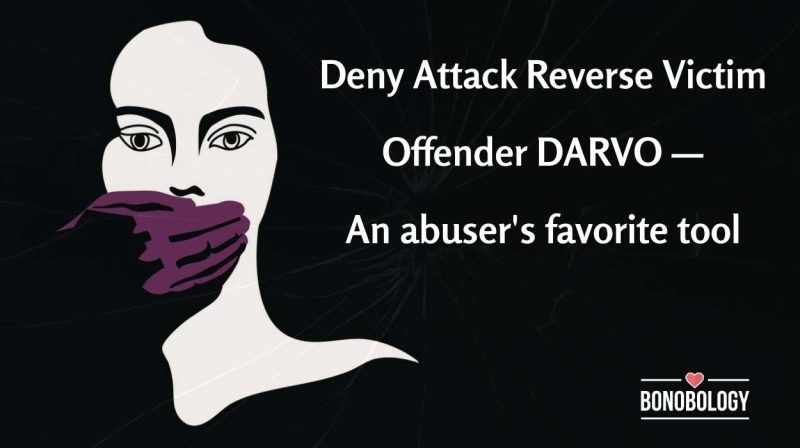

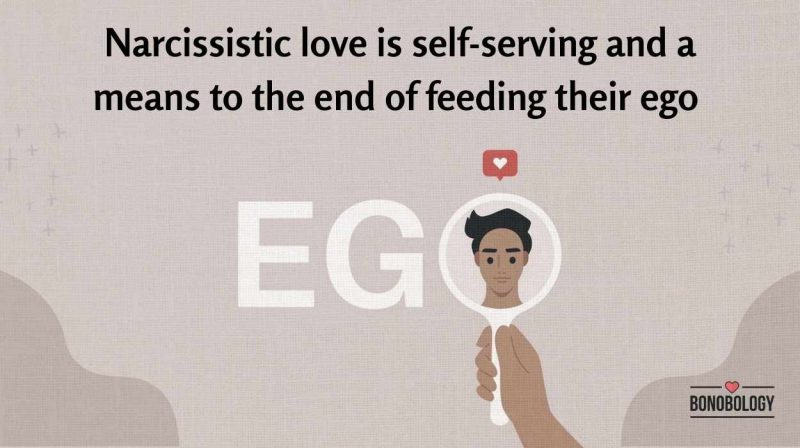
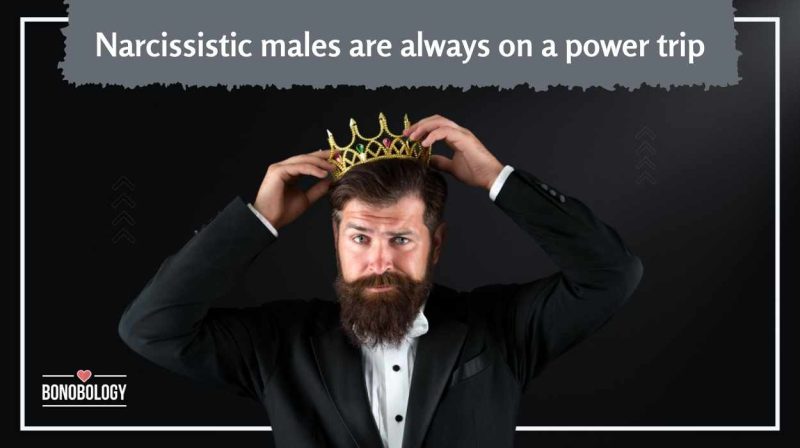
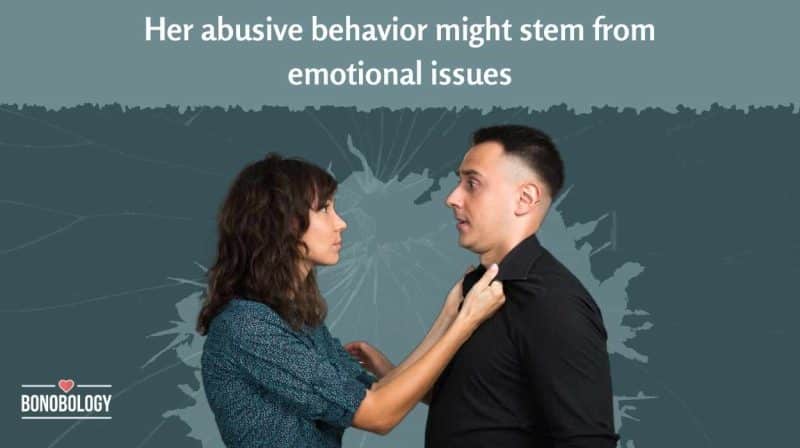
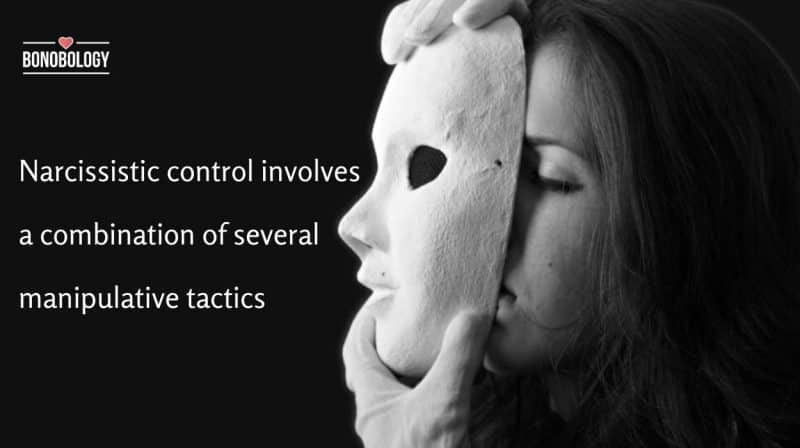
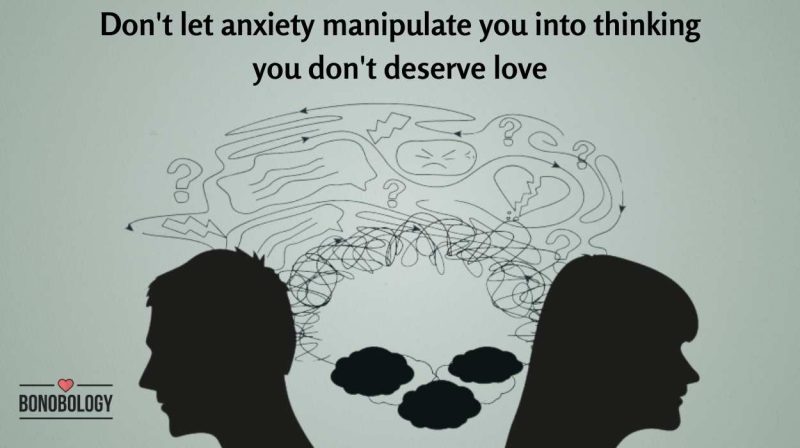
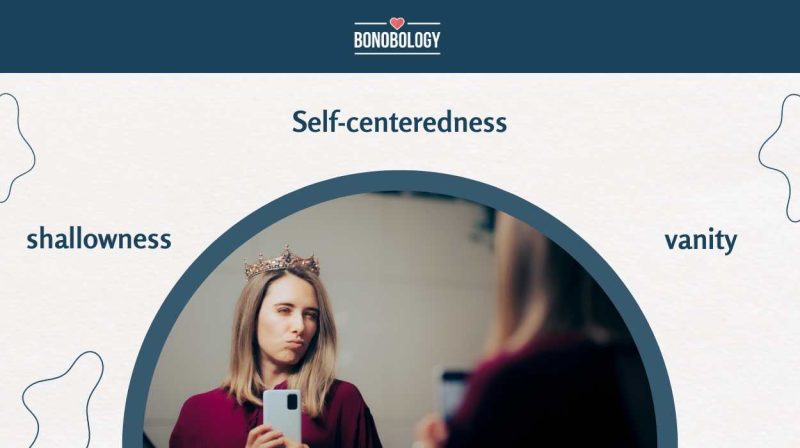

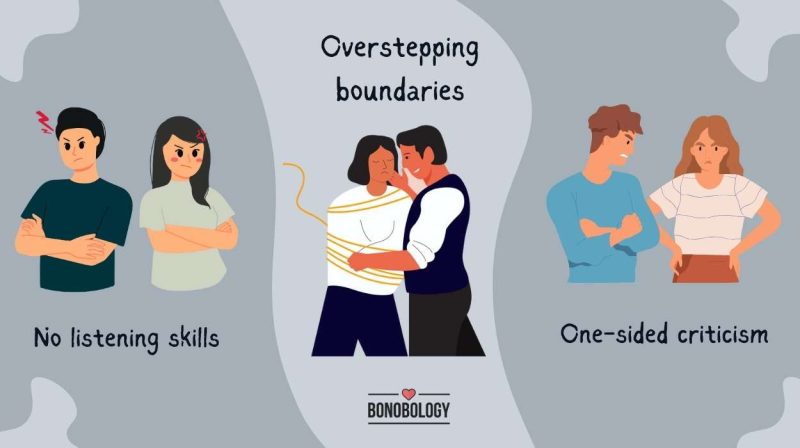
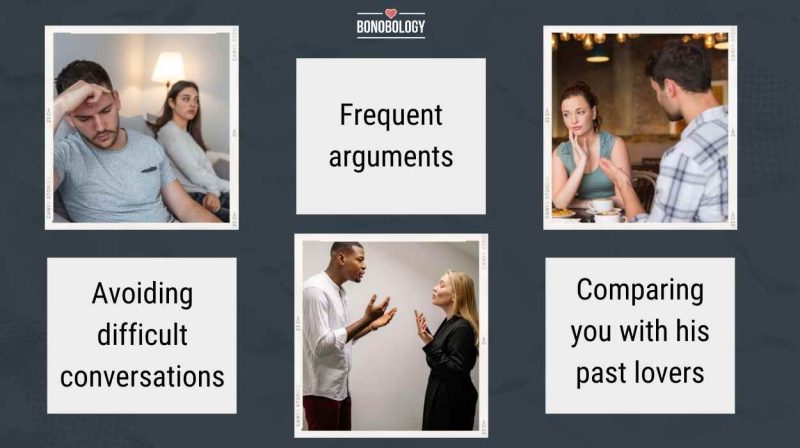
Featured
Unintentional Love Bombing: 9 Ways You May Be Overwhelming Your Partner
13 Signs Of A Hot And Cold Relationship & How To Break The Pattern
21 Subtle Signs You’re Not Really In Love With Your Partner
I Hate My Girlfriend: Why You Feel This Way And What To Do
When Health Challenges Affect Your Relationship Dynamics
5 Harsh But True Signs He’ll Never Marry You
21 Signs That You Are Alone In A Relationship
11 Situationship Red Flags You Should Know About
Why Do I Get Attached So Easily? 9 Possible Reasons and Ways to Stop
How To Respond To DARVO: Expert Lists 7 Strategies
What Is Fexting, And Why Is It Bad For Your Relationship?
Are Narcissists Capable Of Love?
11 Prominent Male Narcissist Traits to Watch For
Why Does My Girlfriend Hit Me? Expert Shares 11 Possible Reasons And Ways To Cope
How Does A Narcissist React When They Can’t Control You?
“My Anxiety Is Ruining My Relationship”: 6 Ways It Does And 5 Ways To Manage It
13 Distinctive Traits Of Female Narcissists Revealed
Recognizing The 13 Red Flags Of A Controlling Relationship
What Are The Examples Of Narcissistic Behavior In A Relationship?
11 Signs He Is Forcing Himself To Love You